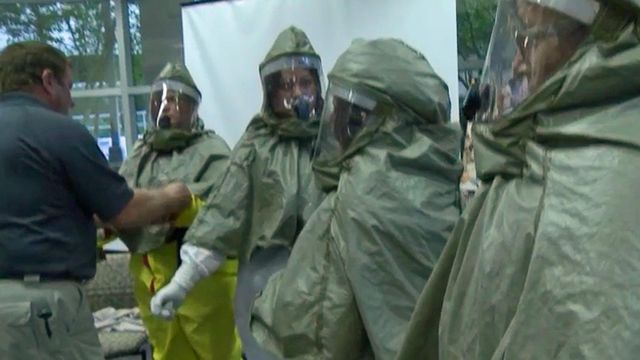UNC doctor: Focus on solutions, not blame for Ebola
"The most important aspect of infection control is the identification and rapid isolation of a suspect patient," Dr. Billy Fischer said.
Posted — UpdatedUpon arrival, he was reassigned to treat Ebola patients in Guinea.
“That was a different conversation with my wife than telling her I was going to Geneva to work on respiratory viruses,” he said.
Fischer knew then that if the outbreak wasn't contained in West Africa, it would spread – even to the United States. Now, he says tighter control efforts are critical.
“I know there's been a lot of focus on fever, in terms of detection, and, to be honest, I think that we have to broaden that catch. I think we have to include symptoms without a fever,” he said.
He says studies show up to 17 percent of infected people did not report a fever. So, screening at airports and among people presenting with illnesses at hospitals should include questions about whether they have come from a country where Ebola is present or have other symptoms, such as diarrhea or vomiting.
“The most important aspect of infection control is the identification and rapid isolation of a suspect patient,” Fischer said.
There also should be strict protocols for getting staff into protective gear and for taking that gear on and off, he says. Those steps weren't taken when Ebola patient Thomas Duncan arrived at Presbyterian Hospital in Dallas on Sept. 29.
“To be honest, I think that could have happened at any institution in the country. I really do,” Fischer said. “But I think what's important is not to focus blame. I think, really, what we have to do is focus on solutions.”
The U.S. Centers for Disease Control and Prevention recently asked Fischer to help prepare doctors for treating Ebola patients in West Africa. A lot of that effort is aimed at building their confidence in the proper use of the protective suits and gear designed to protect workers from infection.
• Credits
Copyright 2024 by Capitol Broadcasting Company. All rights reserved. This material may not be published, broadcast, rewritten or redistributed.





